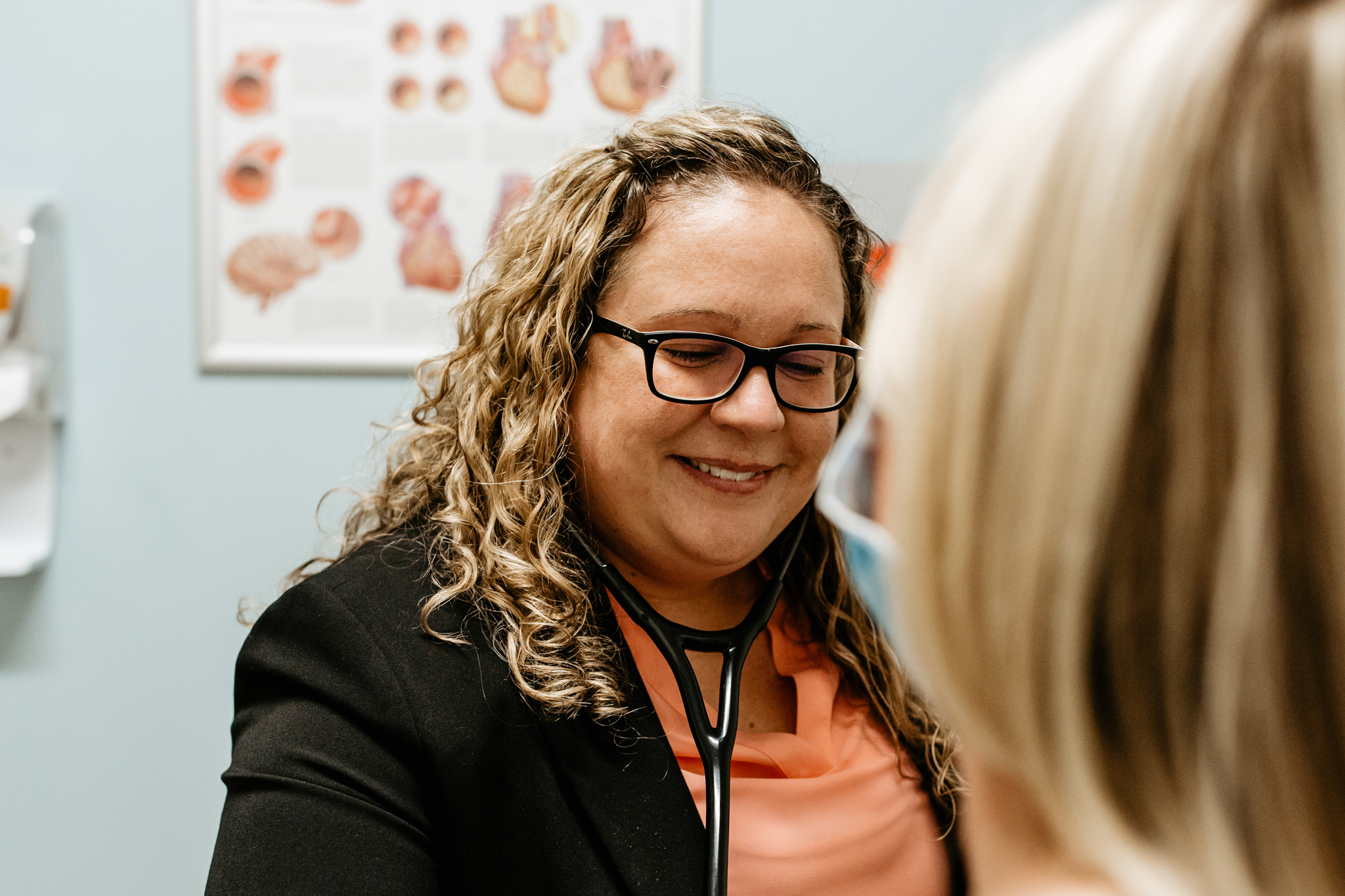Your 40th birthday has come and gone. Maybe you’ve scheduled your first mammogram, or started taking other steps to protect your health. What should you do for your heart health in this new stage of life?
While 40 is certainly a monumental birthday, you might be surprised to learn that not a lot changes when it comes to your heart health in your 40s. The same healthy habits that were good for your heart earlier in life are still the go-to at age 40 and beyond.
But with that said, this decade can be an important time for setting you up for a healthy heart in the years to come. Looking to give your heart health a boost? Start here:
Heart Health Tip 1: Don’t Neglect Your Checkups
It’s important to have a checkup each year with a primary care provider who can identify any areas of your health, including your heart, that may need the attention of a specialist. These appointments also provide an opportunity to draw blood work and perform other tests to gauge important aspects of your heart health, such as your cholesterol level, your blood pressure, and your blood sugar.
During a checkup, your medical provider can also ensure you’re up to date on recommended vaccinations, including the flu shot and the COVID-19 vaccine. These vaccines not only protect you against viruses; they also protect you from heart-related side effects due to viral infections.
Heart Health Tip 2: Watch Your Risk Factors
Your habits in your 40s play a big role in your health in your 60s, 70s, and beyond. In fact, a large-scale study examining more than 25,000 people found that the presence of heart disease risk factors in the 40s, such as being overweight, smoking, or having high blood pressure, was “highly predictive” when it came to heart health later in life.
If you’re already living a heart-healthy lifestyle, yay! But if you’re not, make your 40s a time of healthy change. Commit yourself to regular exercise, a balanced diet low in saturated fat and sodium, and smoking cessation, if needed.
Heart Health Tip 3: Take Time for Self-Care
And no, we aren’t talking solely about massages and long soaks in the bathtub. Burnout is becoming more and more common in today’s world. While a small amount of stress is a good thing, too much stress is not—especially for your heart.
That’s why it’s important to carve out time to take good care of yourself—aka, self-care. While those massages and baths can play a role, self-care involves anything that puts your health and well-being first. That may mean devoting time to working out, taking long walks, meditating, sitting quietly, or even sleeping.
Heart Health Tip 4: Focus on Fueling Your Body
We mentioned eating a healthy diet above, but it’s worth talking a bit more about this tip. While the saying, “You are what you eat,” isn’t exactly true, what you eat plays an important role in keeping your heart healthy.
Take some time to consider what you’re eating. Are you choosing foods that provide fuel for your body, or foods that are mainly empty calories with little nutritional value? Now’s a good time to amp up your intake of fruits and vegetables, whole grains, and lean protein sources like chicken or fish.
Georgia Heart Institute Prevention Center
As the leading heart and vascular program that’s focused on heart health for generations, Georgia Heart Institute has created an innovative center focused solely on patient education, healthy lifestyle behaviors, advanced screening services and support resources – spanning all types and levels of heart disease.
The Prevention Center brings together expertise from non-invasive cardiology, culinary medicine, wellness coaching, cardiopulmonary rehabilitation and more to deliver a holistic and comprehensive experience. This highly-trained team of preventative experts helps patients better understand their heart health, while also providing the expert guidance, advanced diagnostic testing and ongoing care needed to achieve and maintain long-term cardiac wellness.



